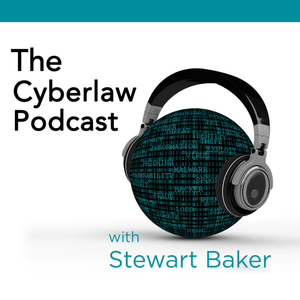
The Cyberlaw Podcast
Stewart Baker
All episodes
Best episodes
Top 10 The Cyberlaw Podcast Episodes
Goodpods has curated a list of the 10 best The Cyberlaw Podcast episodes, ranked by the number of listens and likes each episode have garnered from our listeners. If you are listening to The Cyberlaw Podcast for the first time, there's no better place to start than with one of these standout episodes. If you are a fan of the show, vote for your favorite The Cyberlaw Podcast episode by adding your comments to the episode page.
FAQ
How many episodes does The Cyberlaw Podcast have?
The Cyberlaw Podcast currently has 100 episodes available.
What topics does The Cyberlaw Podcast cover?
The podcast is about News, Tech News, Podcasts, Technology, Privacy and Cybersecurity.
What is the most popular episode on The Cyberlaw Podcast?
The episode title 'Who’s the Bigger Cybersecurity Risk – Microsoft or Open Source?' is the most popular.
What is the average episode length on The Cyberlaw Podcast?
The average episode length on The Cyberlaw Podcast is 53 minutes.
How often are episodes of The Cyberlaw Podcast released?
Episodes of The Cyberlaw Podcast are typically released every 6 days, 23 hours.
When was the first episode of The Cyberlaw Podcast?
The first episode of The Cyberlaw Podcast was released on Feb 16, 2022.
Show more FAQ

Show more FAQ